
Peter Seeger was an American folk singer and social activist. A fixture on nationwide radio in the 1940s, Seeger also had a string of hit records during the early 1950s as a member of The Weavers, notably their recording of Lead Belly's "Goodnight, Irene," which topped the charts for 13 weeks in 1950. Members of the Weavers were blacklisted during the McCarthy Era. In the 1960s, Seeger re-emerged on the public scene as a prominent singer of protest music in support of international disarmament, civil rights, counterculture, workers' rights, and environmental causes.

Guy Hughes Carawan Jr. was an American folk musician and musicologist. He served as music director and song leader for the Highlander Research and Education Center in New Market, Tennessee.

"We Shall Overcome" is a gospel song that is associated heavily with the U.S. civil rights movement. The origins of the song are unclear; it was thought to have descended from "I'll Overcome Some Day," a hymn by Charles Albert Tindley, while the modern version of the song was first said to have been sung by tobacco workers led by Lucille Simmons during the 1945–1946 Charleston Cigar Factory strike in Charleston, South Carolina.
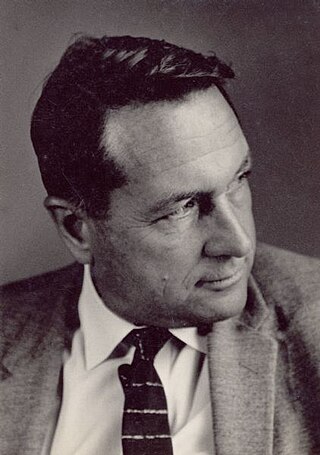
The Highlander Research and Education Center, formerly known as the Highlander Folk School, is a social justice leadership training school and cultural center in New Market, Tennessee. Founded in 1932 by activist Myles Horton, educator Don West, and Methodist minister James A. Dombrowski, it was originally located in the community of Summerfield in Grundy County, Tennessee, between Monteagle and Tracy City. It was featured in the 1985 documentary film, You Got to Move. Much of the history was documented in the book Or We'll All Hang Separately: The Highlander Idea by Thomas Bledsoe.

Myles Falls Horton was an American educator, socialist, and co-founder of the Highlander Folk School, famous for its role in the Civil Rights Movement. Horton taught and heavily influenced most of the era's leaders. They included Martin Luther King Jr., Rosa Parks, John Lewis, James Bevel, Bernard Lafayette, and others who would create the Nashville Student Movement, Ralph Abernathy, John B. Thompson, and many others.
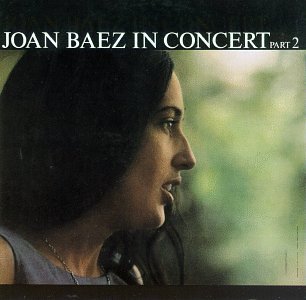
Joan Baez in Concert, Part 2 was a second installment of live material, recorded during Joan Baez' concert tours of early 1963. It peaked at number 7 on the Billboard Pop Albums chart.
Applied folklore is the branch of folkloristics concerned with the study and use of folklore and traditional cultural materials to address or solve real social problems. The term was coined in 1939 in a talk by folklorist Benjamin A. Botkin who, along with Alan Lomax, became the foremost proponent of this approach over the next thirty years. Applied folklore is similar in its rationale and approach to applied anthropology and other applied social sciences, and like these other applied approaches often distinguishes itself from "pure" research, that which has no explicit problem-solving aims.

"Michael, Row the Boat Ashore" is a traditional African-American spiritual first noted during the American Civil War at St. Helena Island, one of the Sea Islands of South Carolina. The best-known recording was released in 1960 by the U.S. folk band The Highwaymen; that version briefly reached number-one hit status as a single.
Lee Elhardt Hays was an American folk singer and songwriter, best known for singing bass with the Weavers. Throughout his life, he was concerned with overcoming racism, inequality, and violence in society. He wrote or cowrote "Wasn't That a Time?", "If I Had a Hammer", and "Kisses Sweeter than Wine", which became Weavers' staples. He also familiarized audiences with songs of the 1930s labor movement, such as "We Shall Not Be Moved".
Freedom songs were songs which were sung by participants in the civil rights movement. They are also called "civil rights anthems" or, in the case of songs which are more hymn-like, they are called "civil rights hymns."
"Keep Your Eyes on the Prize" is a folk song that became influential during the American Civil Rights Movement of the 1950s and 1960s. It is based on the traditional song, "Gospel Plow," also known as "Hold On," "Keep Your Hand on the Plow," and various permutations thereof.
People's Songs was an organization founded by Pete Seeger, Alan Lomax, Lee Hays, and others on December 31, 1945, in New York City, to "create, promote, and distribute songs of labor and the American people." The organization published a quarterly Bulletin from 1946 through 1950, featuring stories, songs and writings of People's singers members. People's Songs Bulletin served as a template for folk music magazines to come like Sing Out! and Broadside.
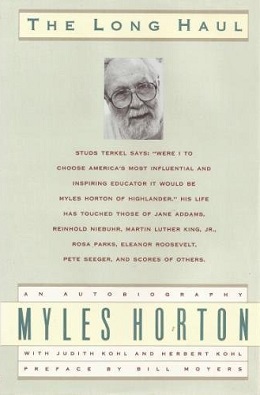
The Long Haul is an autobiography of Myles Horton, labor organizer, founder of the Highlander School and perhaps the first practitioner of what would later be called popular education. Highlander used the principles of democratic education - where students were the authorities in the classroom, the teacher is a facilitator, and the focus of education is teaching collective action for social change - to play a key role in the labor movement of the 1930s and the civil rights movement of the 1950s and 1960s. Horton pioneered many of the educational principles Paulo Freire would make famous worldwide in the 1980s.
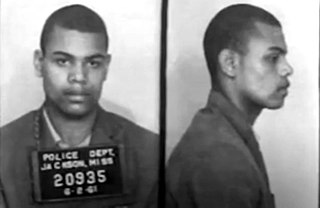
Cordell Hull Reagon was an American singer and activist. He was the founding member of The Freedom Singers of the Student Nonviolent Coordinating Committee (SNCC), a leader of the Albany Movement and a Freedom Rider during the Civil Rights Movement.
The Freedom Singers originated as a quartet formed in 1962 at Albany State College in Albany, Georgia. After folk singer Pete Seeger witnessed the power of their congregational-style of singing, which fused black Baptist a cappella church singing with popular music at the time, as well as protest songs and chants. Churches were considered to be safe spaces, acting as a shelter from the racism of the outside world. As a result, churches paved the way for the creation of the freedom song. After witnessing the influence of freedom songs, Seeger suggested The Freedom Singers as a touring group to the SNCC executive secretary James Forman as a way to fuel future campaigns. Intrinsically connected, their performances drew aid and support to the Student Nonviolent Coordinating Committee (SNCC) during the emerging civil rights movement. As a result, communal song became essential to empowering and educating audiences about civil rights issues and a powerful social weapon of influence in the fight against Jim Crow segregation. Rutha Mae Harris, a former freedom singer, speculated that without the music force of broad communal singing, the civil rights movement may not have resonated beyond of the struggles of the Jim Crow South. Their most notable song “We Shall Not Be Moved” translated from the original Freedom Singers to the second generation of Freedom Singers, and finally to the Freedom Voices, made up of field secretaries from SNCC. "We Shall Not Be Moved" is considered by many to be the "face" of the Civil Rights movement. Rutha Mae Harris, a former freedom singer, speculated that without the music force of broad communal singing, the civil rights movement may not have resonated beyond of the struggles of the Jim Crow South. Since the Freedom Singers were so successful, a second group was created called the Freedom Voices.
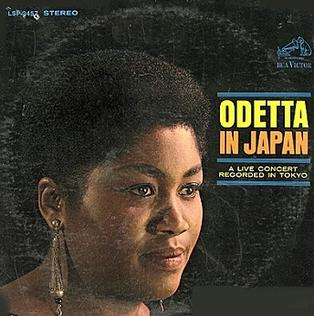
Odetta in Japan is a live album by American folk singer Odetta, released in 1966. It was her final album for RCA Victor.
May Justus was an American author of numerous children's books, almost all of which were set in Appalachia and reflect the traditional culture of her native East Tennessee. She also worked as a teacher and served for many years as volunteer secretary-treasurer for the Highlander Folk School.

We Shall Overcome is a 1963 album by Pete Seeger. It was recorded live at his concert at Carnegie Hall, New York City, on June 8, 1963, and was released by Columbia Records.
Carolanne Marie "Candie" Carawan (née Anderson) is an American civil rights activist, singer and author known for popularizing the protest song "We Shall Overcome" to the American Civil Rights Movement with her husband Guy Carawan in the 1960s.
James Anderson Dombrowski was an American civil rights activist and Methodist minister. He founded the Highlander Folk School in Tennessee, led the Southern Conference for Human Welfare, and was director of the Southern Conference Educational Fund from 1948 to 1966. A Christian socialist and radical organizer, he was a frequent target of segregationists who accused him of being a Communist. He sued the state of Louisiana in the 1965 Supreme Court case Dombrowski v. Pfister. Dombrowski was ordained as a Methodist minister and earned his PhD from the Union Theological Seminary in New York.










